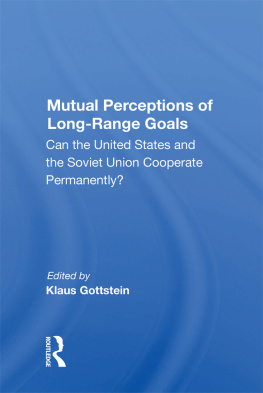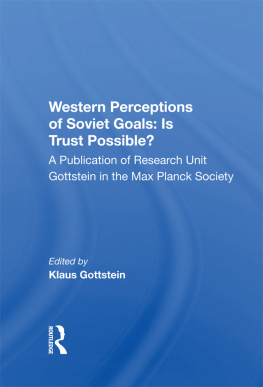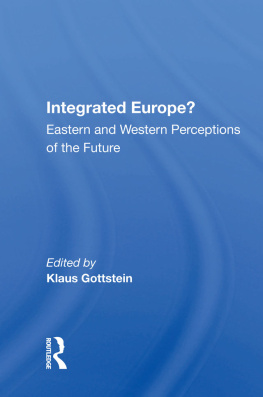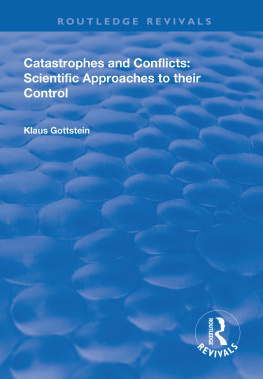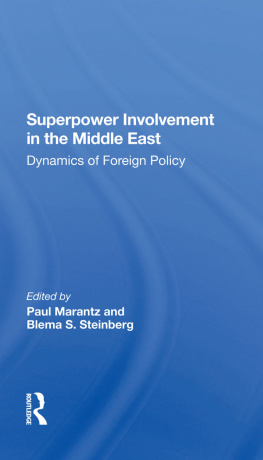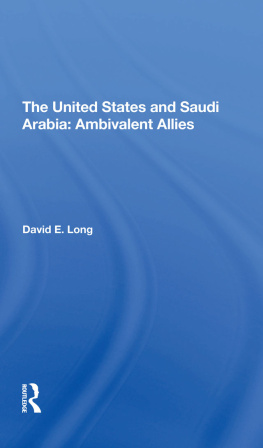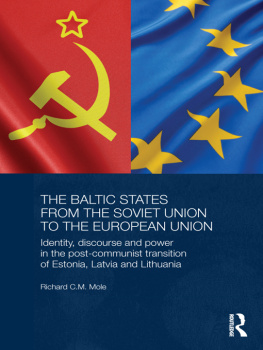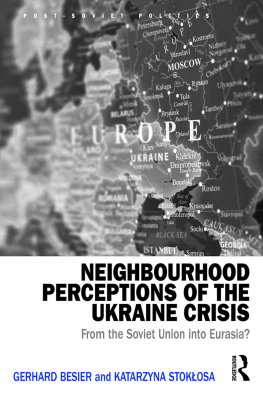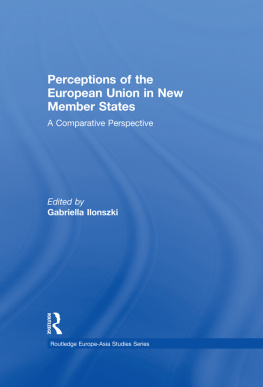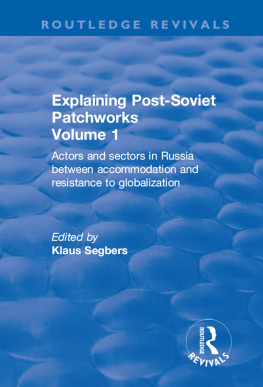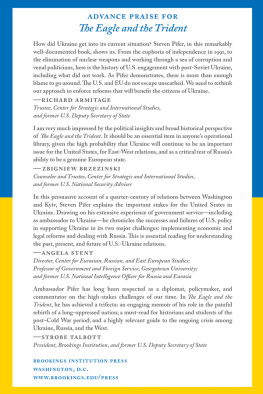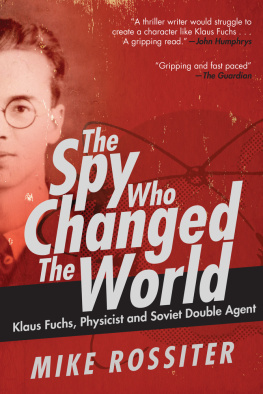Mutual Perceptions of Long-Range Goals
A Publication of Research Unit Gottstein in the Max Planck Society
Klaus Gottstein is director of a research unit of the Max Planck Society investigating problems of science and society. He is professor at the University of Munich and member of the German UNESCO Commission and of the Scientific Council of the Max Planck Society. He was Executive Secretary of the Scientific Forum of the Conference on Security and Cooperation in Europe (CSCE) and Science Counselor of the Embassy of the Federal Republic of Germany in Washington, D.C.
Klaus Gottstein , Editor
Mutual Perceptions of Long-Range Goals
Can the United States and the Soviet Union cooperate permanently?
With contributions by:
Hannes Adomeit, Vladimir Babak, Vladimir Baranovskij, Jrn Behrmann, Falk Bomsdorf, Arnold Buchholz, Vyacheslav Dashichev, Astrid Ertelt-Vieth, Raymond Garthoff, Ren Herrmann, Richard Herrmann, Egbert Jahn, Jrg Kastl, Peter Knirsch, Stephen Larrabee, Allen Lynch, Frances Mautner-Markhof, Aleksandr Naumenkov, Gottfried Niedhart, Richard Pipes, Sergej Plekhanov, Michael Richter, Rita Rogers, Eberhard Schulz, Klaus Segbers, Dieter Senghaas, Victor Shein, Mark Shkundin, Yurij Shvedkov, Leon Sigal, Bruce Smith, Manfred Spth, John Van Oudenaren, Leonid Yagodovskij
First published 1991 by Westview Press
Published 2018 by Routledge
52 Vanderbilt Avenue, New York, NY 10017
2 Park Square, Milton Park, Abingdon, Oxon OX14 4RN
Routledge is an imprint of the Taylor & Francis Group, an informa business
Copyright 1991 in Frankfurt am Main by Campus Verlag
All rights reserved. No part of this book may be reprinted or reproduced or utilised in any form or by any electronic, mechanical, or other means, now known or hereafter invented, including photocopying and recording, or in any information storage or retrieval system, without permission in writing from the publishers.
Notice:
Product or corporate names may be trademarks or registered trademarks, and are used only for identification and explanation without intent to infringe.
Library of Congress Cataloging-in-Publication Data
Mutual perceptions of long-range goals: Can the United States and the Soviet Union
cooperate permanently? edited by Klaus Gottstein.
p. cm.
Includes bibliographical references and index.
ISBN 0-8133-1229-9
1. United States--Foreign relations--Soviet Union. - 2. Soviet
Union--Foreign relations--United States. - 3. World politics--19851995. I. Gottstein,
Klaus, 1924
E183.8.S65M87 1991
327 47073--0020 90-20720
ISBN 13: 978-0-367-00414-9 (hbk)
Table of Contents
Klaus Gottstein
Sergej Plekchanov
Richard Pipes
Vyacheslav Dashichev
Egbert John
Raymond Garthoff
Vladimir Babak
Gottfried Niedhart
Arnold Buchholz
John Van Oudenaren
Victor Shein
Vladimir Baranovskij
Richard Hernnann
Rita Rogers
Dieter Senghaas
Mark Shkundin
Stephen Larrabee
Aleksandr Naumenkov
Klaus Gottstein
Michael W. Richter
Yurij Shvedkcov
Manfred Spth
Astrid Ertelt-Vieth
Jrn Behrmann
Guide
The last twelve months have seen historical changes in the political land-scape of Europe. They have affected profoundly what used to be called East-West relations. It is still not clear what the final outcome of the recent movements will be. Will there be a new, stable equilibrium, with a prospect of continued peaceful development? Or will the local and regional instabilities, already visible in some parts of Eastern Europe and of the Soviet Union, also affect international relations, particularly those between the United States and the Soviet Union, between NATO and Warsaw Pact, and between the major European nations?
Whatever the path of history will be, it is clear that it will be deeply influenced by the perceptions which the acting elites hold of each other's long-range goals in the political re-orientation of international relations. The goals as such may not even exist in reality at least it will be very difficult to identify them in the heads of leaders but the perceptions of these goals do exist in the scenarios prepared by both sides. They are real because they determine policies. Will these perceptions allow mutual trust? Without mutual trust it will hardly be possible to deal satisfactorily with the tasks that will have to be carried out for the creation of a new, stable and acceptable European order.
At this research unit of the Max Planck Society we are engaged in a project, begun in 1984, in which we investigate these perceptions, including strategic, normative and imagined perceptions, of long-range political goals in the East and in the West. Our method is to convene representatives of the countries concerned and to have them describe the perceptions in their countries of the developments in opposing countries as well as at home. The arguments used to support the perceptions so described are then dis. The Preface and the Introductory Remarks to that book describe the background and the history of this project in greater detail. Put in a nutshell, the purpose of the project is to contribute to-wards the removal of mutual fears and false hopes based on misunderstandings. With this in mind, the role of ideologies, of fears and anxieties, of cultural and historical backgrounds, and the possibilities and limitations for creating mutual confidence or trust were discussed at the Ringberg Workshop of November 1987, taking into account security and economic aspects of East-West relations.
At the time of the Cold War the course of events was essentially determined by the United States and the Soviet Union, with the European nations trying more or less successfully to have their interests taken adequately into account. Therefore it seemed reasonable to study next the mutual perceptions that can be identified among the political leadership and the public of the two leading powers. So we continued the project by convening a Conference on the Mutual Perceptions of Long-Range Goals in the East-West Conflictto which Soviet experts on the United States and Western Europe were invited as well as U.S. and German Sovietologists. Initially, we had planned to invite to that meeting not only representatives of the U.S.S.R., the United States and the Federal Republic of Germany, but also of the other European countries. At a preparatory meeting of the organizing committee, with U.S. and Soviet participation, it was decided, however, that it would be better to clarify first the mutual perceptions of the two leading powers of the two alliances, i.e. of the U.S.S.R. and the United States. To bring in the special interests, views and problems of the other countries in Eastern Europe, Western Europe and in the neutral and non-aligned countries of Europe right from the beginning would make the initial discussions too complex and too confusing, it was felt. Therefore it was decided to postpone to a later stage the participation of representatives of these other countries.
Nine Soviet scholars from four institutes of the Academy of Sciences of the U.S.S.R. (the Institutes for World Economy and International Relations, for Europe, for U.S.A. and Canada, and for the Economy of the World Socialist System), ten scholars from the United States, specializing in Soviet affairs and in the role of perceptions in politics, and fifteen German experts attended the meeting which took place at the Evangelische Akademie Tutzing, near Munich, from May 28 to June 1, 1989. The papers read and the ensuing discussions are reproduced in this book. The contributions under the heading Additional Papers were available but were not read. For this reason they are placed at the end. The paper by Michael Richter was meant as an introduction to the methodology. Although it describes the distribution of roles in a way that was not entirely followed by the actual East-West dialogue of the meeting, it is useful because of the exceptional clarity with which it outlines the semantic foundations of our method. Some parts of this methodologically basic paper were already contained in M. Richter's contribution to our previous book. The paper by Y. Shvedkov represents a more conservative, certainly still highly significant part in the spectrum of Soviet perceptions. M. Spth, in his contribution, argues that, contrary to many expectations, ecological cooperation between East and West will not necessarily lead to a reduction of tensions and misperceptions.


